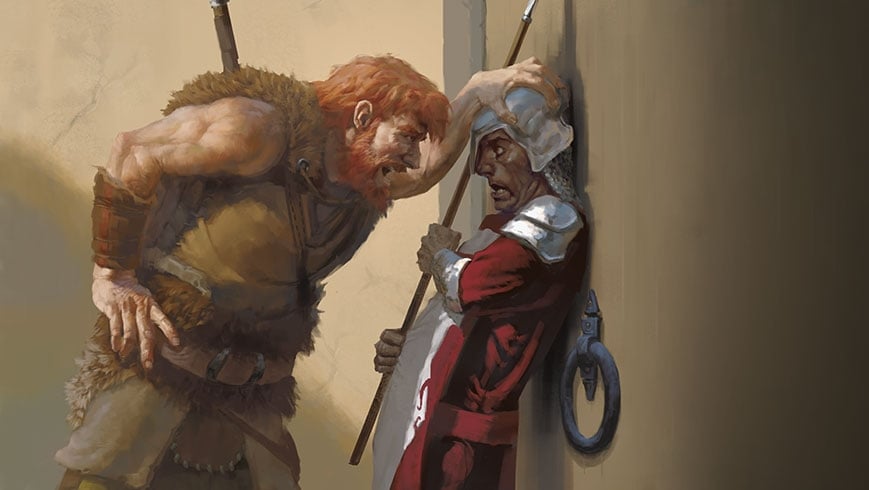D&D: Five Solid Words to Use for the Command Spell

Words can hurt. Especially when those words are used as part of the D&D Command spell. Break out the thesaurus for these ones.
Command is one of those spells that does exactly what it says on the tin. You command someone to do something, and they do it. There are some (many) restrictions since it’s only a first-level spell. But in a nutshell, this spell makes one creature obey a single one-word command.
It’s a spell intrinsic to most divine casters. Clerics, Paladins, and Warlocks with Fiendish patrons all have access to it. A number of Cleric Domains and Paladin Oaths can always have it ready to go. It’s a handy spell too: in the basic rules, there are some suggested sample commands.
Approach. The target moves toward you by the shortest and most direct route, ending its turn if it moves within 5 feet of you. Drop. The target drops whatever it is holding and then ends its turn. Flee. The target spends its turn moving away from you by the fastest available means. Grovel. The target falls prone and then ends its turn. Halt. The target doesn’t move and takes no action. A flying creature stays aloft, provided that it is able to do so. If it must move to stay aloft, it flies the minimum distance needed to remain in the air.
But crucially, the spell also specifies: “you might issue a command other than the ones described here.” With that in mind, here are five great words to use the next time you cast a Command spell.
Answer
Need to get an answer in a hurry? Use this D&D Command spell to force someone to answer a question. You’ll have to time it just right, ask the target a question, then cast the Command spell with the dictated Answer.
It’s no Zone of Truth, but it should at least get you something. For real bonus points here, use the word “Confess” to get your inquisition rolling.
Eat/Drink/Quaff/Imbibe
Need to get someone to eat or drink whatever you have in the vessel with the pestle, the chalice from the palace, or the flagon with the dragon? Lay out a sumptuous, completely innocent, and not-poisoned-at-all feast. Then Command someone to Ingest/Eat/Drink and you’re good to go.
Surrender
The “or die” is implied.
Believe
This use of the D&D Command spell is more situational. But if you’ve just told someone a whopper of a tale, and want to reinforce the idea that you’ve told the truth… Commanding someone to Believe might convince them to do exactly that.
You might want to be careful though. Never know what you might Command someone to believe like this.
Betray
C0mmand won’t work if the Command you give is directly harmful to your target. But what about indirect harm? The Command “Betray” is probably leaving a lot up to the DM to determine how the creature reacts.
But it’s bound to be interesting. An enemy might attack one of its allies. Or perhaps they’ll betray a confidence or secret. Only one way (and one word) to find out.
Happy Adventuring!











